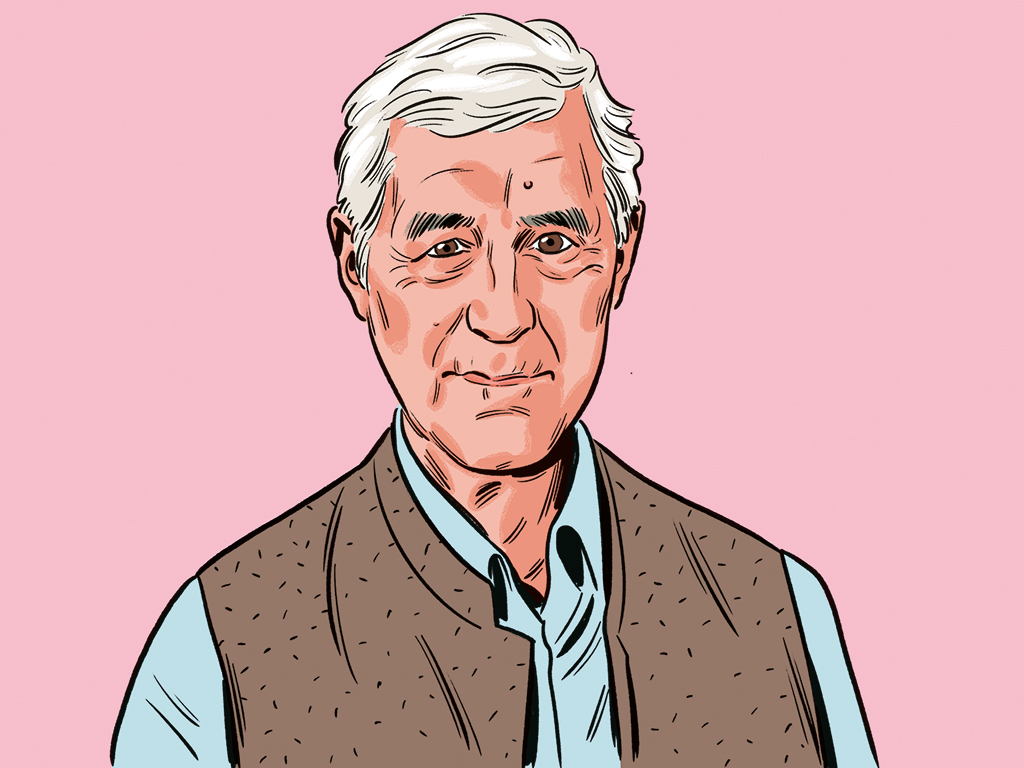
Mike Brearley was born in Harrow in 1942. As a cricketer, he captained Middlesex and England. He has since pursued a career as a psychoanalyst, and from 2008 to 2010 was president of the British Psychoanalytical Society.
What’s your earliest memory?
The fear of a bomb being dropped on our house in London during the Second World War. This fear continued for years. When I was told that the sun and stars were bigger than the Earth, I had a new fear: would they burst through the ceiling of the sky?
Who are your heroes?
As a child, Jack Robertson, the Middlesex and England opening batsman (and Horace Brearley, my father). As an adult, it’s the British philosopher John Wisdom.
What book last changed your thinking?
Jonathan Lear’s Imagining the End, in which he talks about the value and centrality of mourning to an ethical life.
Which political figure do you look up to?
Barack Obama, a man of honesty, which was highlighted by the contrast of what followed him.
What would be your “Mastermind” specialist subject?
Sigmund Freud or Middlesex cricket, but my Mastermind-type knowledge is patchy.
[See also: Arnold Schwarzenegger’s lessons for losers]
In which time and place, other than your own, would you like to live?
Without current medicine I would probably have died three times by now. Yet, having said this, Athens in the fifth century.
Who would paint your portrait?
Jonny Yeo, who already has.
What’s your theme tune?
Beethoven’s Razumovsky Quartet, Op 59 No 1. I would hum the opening cello theme as Michael Holding ran in to bowl at me. The idea was that this would help me avoid being mesmerised by the graceful beauty of his run-up.
What’s the best piece of advice you’ve ever received?
Don’t get your feet too far under the table too soon, from my father. He had a cautionary tale of a friend who had brought his girlfriend home when they were in their very early twenties. She ran off with his brother.
What’s currently bugging you?
It’s churlish to complain, since the invitations are gratifying and I enjoy the actual events, but having to make all the complicated travel and other arrangements for literary festivals.
What single thing would make your life better?
A better grounding in, and a better attitude towards, practical things in life – mending, carpentry, how things work around the house, computers.
When were you happiest?
For most of the last nine years, I’ve spent two and a half months every winter in India with my wife. The extraordinarily absorbing Ashes series in 1981. Sailing in the Aegean with friends, especially in the varied off-season October weather.
In another life, what job might you have chosen?
A film and theatre director. I have been privileged to be asked by the director Ian Rickson to join rehearsals of some of his plays, and hugely admired the way the actors take risks in imagining their roles and the relationships of their characters. Rickson’s job has a lot in common with being a cricket captain.
Are we all doomed?
No. One thing Jonathan Lear shows us is that mourning the feeling of doom is a way to build something better next time.
“Turning Over the Pebbles: A Life in Cricket and in the Mind” by Mike Brearley is published by Constable. He will appear at Cambridge Literary Festival’s Winter Weekend on 18 November – visit cambridgeliteraryfestival.com
[See also: What are private schools really selling?]
This article appears in the 08 Nov 2023 issue of the New Statesman, The Age of Fury






